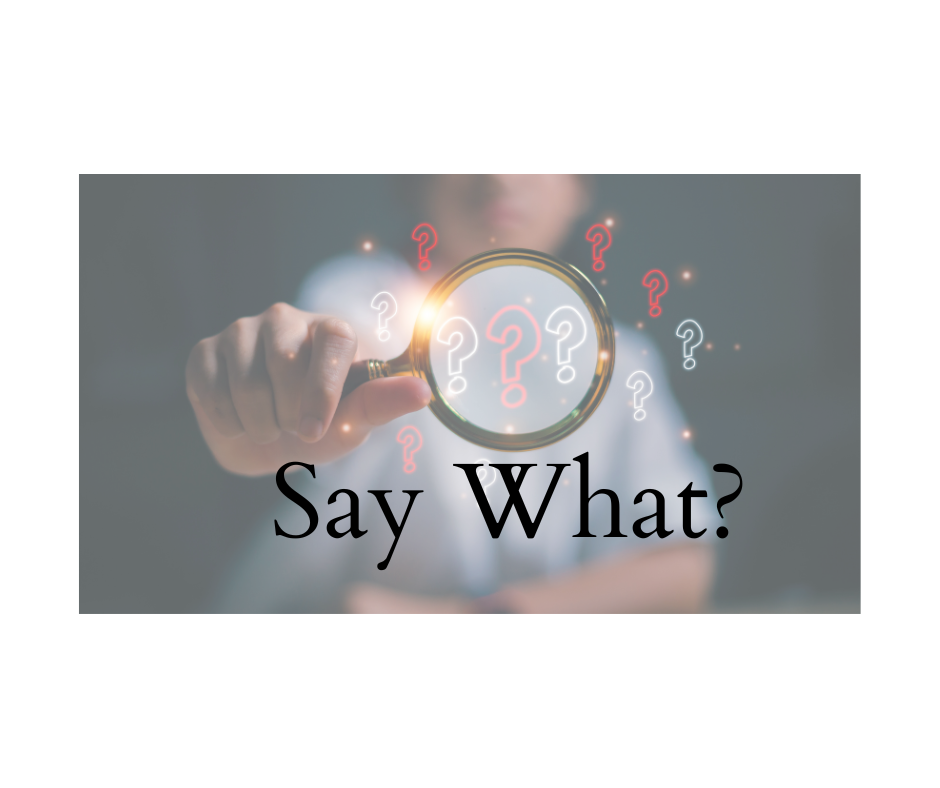Are You Asking a Question or Not?
Wondering when to use a question mark? The answer is simple. When you expect an answer. Yet, I continually see writers getting “question mark happy” and sticking these bits of punctuation where they have no business being.
Direct questions—the kind journalists ask to get a story—demand an answer. They are often referred to as the 5 (or 6) W’s: who, what, when, where, why, and how.
What happened? Who was involved? When did it happen? Where? Why? How? Direct questions almost always begin with some variation of the 5 W’s. If one of these isn’t the first word in the sentence, it’s probably in there some place, like: “Well, just what are you doing in there?” or “Just who do you think you are?”
Sentences that begin with a being verb like are, is, were, and the like also indicate a direction question.
- Are you going to Scarborough Fair?
- Is anyone going with you?
- May I come along?
All these questions demand an answer and a question mark.
And now to complicate things, just a little. We also pose indirect questions, but we don’t expect answers to these questions.
- I wondered why he went in there.
- I asked her what the problem was.
Sometimes writers prefer not to have question marks following rhetorical questions (a matter of choice):
- Who could blame him.
No one really expects an answer to a question like that. And neither do these indirect questions require question marks.
Got it?









I disagree with the last example (the rhetorical question, Who ould blame him). IT should have a question mark after it. A rhetorical question IS a question, unlike the implied question in “I wondered why he went in there”.
I understand. However, most writing instructors and texts do say that a question like that doesn’t take a question mark. Personally, I feel it’s a matter of style and voice that determines. But the consensus runs with the above style (no question mark).
Thank you. This does make it simple for me to remember.
I read this chapter in your book, just today. My life was simple *and good* until I decided to edit my novel, myself 😛
Actually I wanted to use self-edit (in the above sentence), but I wasn’t sure whether the – comes inbetween self and edit. So, I changed the sentence. This, in spite of reading that section from your book too 🙂
Destination Infinity
Words with self are hyphenated: self-edit, self-inflicted, self-esteem, etc. It’s okay if all this makes you a bit self-conscious!
Thanks for this.
I have a quick question. Would you recommend using an editing software programme?
I have been searching for one, but haven’t found one that is all that great yet (at least in regards to correcting grammar).
Even though I have the above information in your book, I enjoy the comments and your replies. They really bring your ideas to life. It is truly a weakness in my writing. I am self-conscious when I comment on your column on grammar. You are the Guru for grammar. Who could blame me.
I was taught that a rhetorical question “neither expects nor requires an answer” so I would never use a question mark. Thanks for another great post.